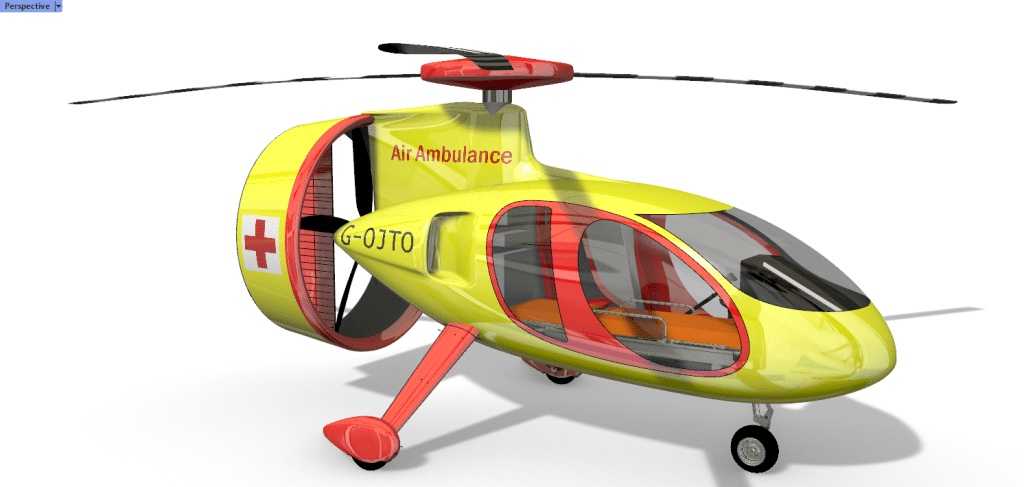ARC Aero Systems, a UK-based aviation firm, has achieved a significant milestone by securing Civil Aviation Authority (CAA) E Conditions certification for its innovative hybrid-electric aircraft, the Avian Pegasus. This development marks a key advancement in the company’s mission to deliver affordable, sustainable, and runway-independent air transport solutions, particularly for remote rural areas and emergency rescue services.
The Avian Pegasus, a modern adaptation of a gyroplane design originally developed in the 1960s, has been modified to incorporate hybrid-electric propulsion technology. This design enables the aircraft to operate without the need for extensive e-charging infrastructure, using a variety of fuels including hydrogen. The aircraft’s small footprint allows it to take off and land on minimal level ground, enhancing its accessibility to remote locations.
ARC Aero Systems is now preparing to initiate test flights of the Pegasus, having completed the certification process which is a crucial step before commercialisation. The certification enables ARC to move forward with its plans to introduce the Pegasus into a market projected to expand from $9 billion to $45 billion by 2030.
The company is currently raising £1.5 million through a new investment round that includes crowdfunding and private investor contributions. This funding will support the continued development and commercialisation of the Pegasus model, with plans to bring the aircraft to market in 2026. To date, ARC has secured around £9 million in funding from investors including the British Business Bank and received £2 million in grants from the Low Carbon Innovation Fund and Innovate UK.
In addition to advancing its Pegasus model, ARC Aero Systems has already sold 15 units of the aircraft. Among the buyers are Norwich-based charity SkyAngels Air Ambulance and a Scottish pilot training school, reflecting early market confidence in the technology.
Looking ahead, ARC is also working on the Linx P9, a larger nine-seat eVTOL aircraft scheduled for release in 2029. This model will incorporate the jump take-off technology of the Pegasus, along with a hybrid propulsion system and advanced flight controls.
Dr Seyed Mosheni, Founder and CEO of ARC Aero Systems, expressed enthusiasm about the certification and the future of the company’s technology: “Securing CAA E Conditions certification for our hybrid Pegasus is a major step forward. Our aircraft promises to revolutionise air mobility with minimal infrastructure requirements and a focus on sustainability. We are thrilled by the market interest and look forward to advancing our technology and bringing innovative solutions to underserved regions and emergency services.”
For more information on ARC Aero Systems and their technology, visit their website.




